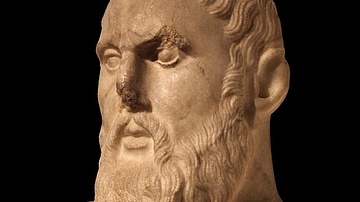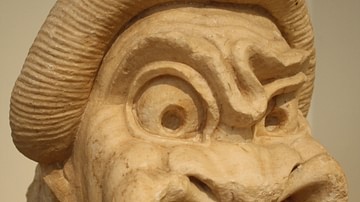Search
Search Results

Article
Herodotus on Lydia
Herodotus’ narrative on Lydia takes up almost one half of Book I of his Histories and the section dealing with King Croesus is among the best-known and often anthologized. The last section, in which he discusses Lydian women as prostitutes...

Article
Norse Alcohol & The Mead of Poetry
Alcohol played an integral part in Norse culture. People drank ale more than water because the brew had to be boiled as part of the process and so was safer to drink. The Norse of Scandinavia had four main types of fermented beverage: ale...

Article
The Frog Princess
The Frog Princess is a Slavic folktale focusing on the importance of recognizing someone’s inner beauty, regardless of their outward appearance, as well as the possibility of redemption after failure. The tale has many variants and appears...

Article
Marie Dentière's A Very Useful Epistle
A Very Useful Epistle (Epistre tres utile, 1539) is an open letter by the female reformer Marie Dentière (l. c. 1495-1561) to Marguerite of Navarre (l. 1492-1549) advocating for a greater role for women in the work of the Protestant Reformation...

Article
Coyote Tales of the Shasta Nation
The Coyote tales come from the Shasta people who originally inhabited the regions of modern-day northern California and southern Oregon. Coyote is a popular trickster figure among many Native peoples of North America, including the Shasta...

Article
The Contest between Odin & Thor
The poem called The Lay of Greybeard (Old Norse: Hárbarðsljóð) is one story from Norse mythology that relates an intriguing verbal fight between two of its essential gods, Thor and Odin. The poem consists of 60 stanzas and is found complete...

Article
The Bear Man
The Bear Man is a Pawnee legend exemplifying the Native American understanding of the natural world and serving as an origin tale for the Bear Dance, which was performed to awaken the bears in spring from their winter hibernation and also...

Article
The Shield of Heracles: The Complete Poem
The Shield of Heracles (also known as The Shield of Herakles and, in the original, Aspis Herakleous) is a poem of 480 hexameter lines written by an unknown Greek poet in the style of Hesiod (lived 8th century BCE). It deals with the Greek...

Article
The Life and Thought of Zeno of Citium in Diogenes Laertius
Zeno of Citium (c. 336 – 265 BCE) was the founder of the Stoic School of philosophy in Athens, which taught that the Logos (Universal Reason) was the greatest good in life and living in accordance with reason was the meaning of life. He was...

Article
The Plays of Cratinus
Cratinus was a highly successful writer of Attic Old Comedy, but the very fragmentary nature of his surviving plays means that he is not as well remembered as Aristophanes (eleven of whose plays come down to us intact). Despite this, it is...